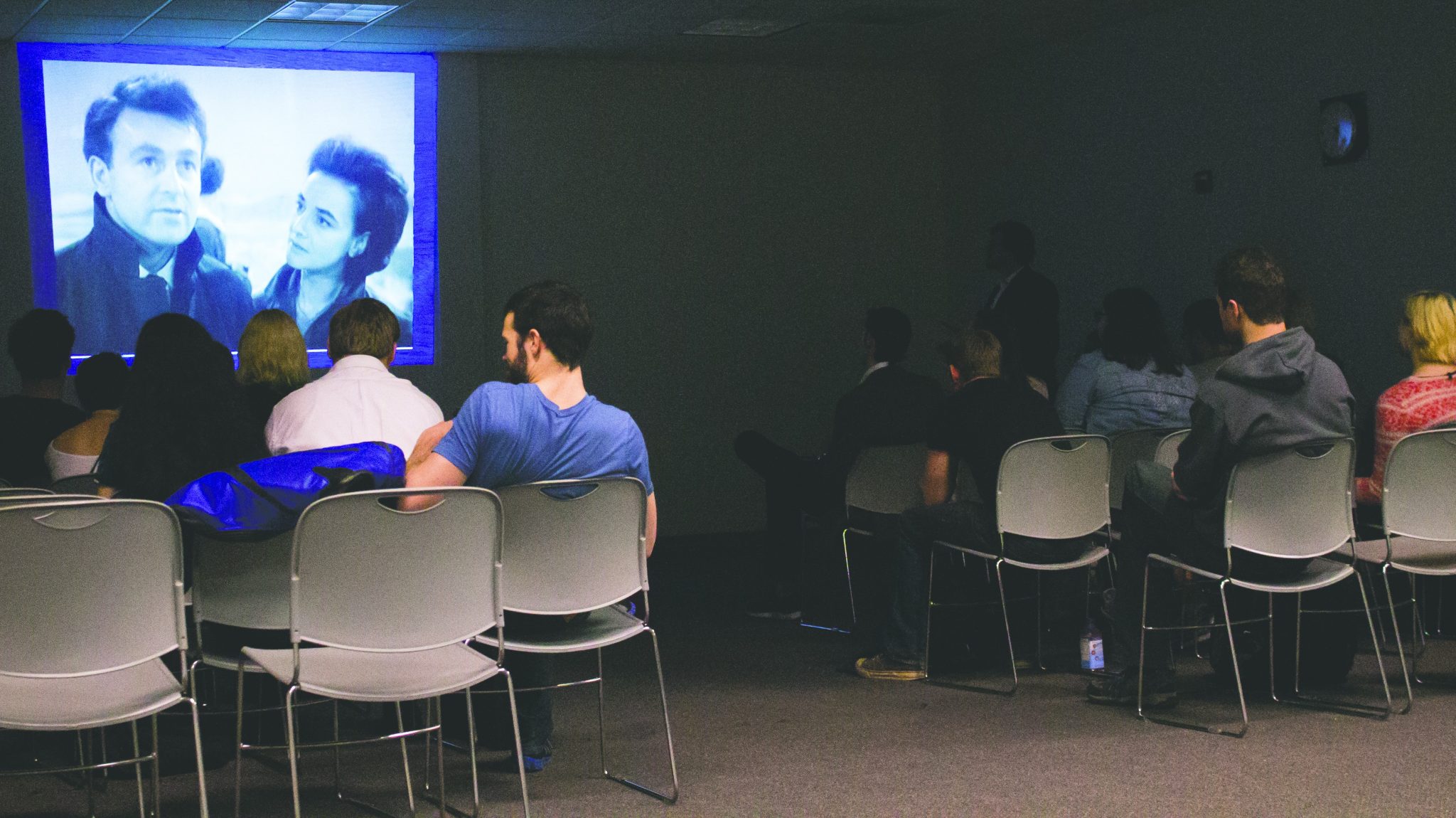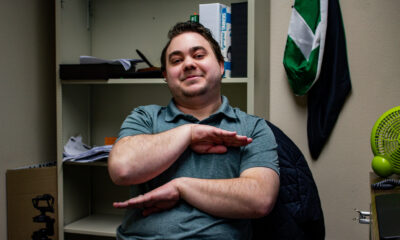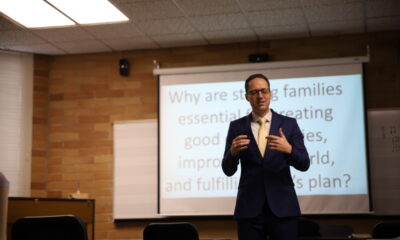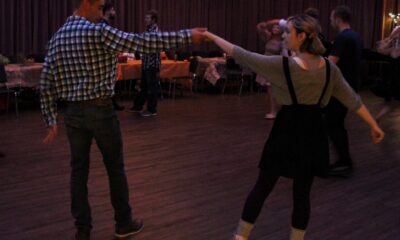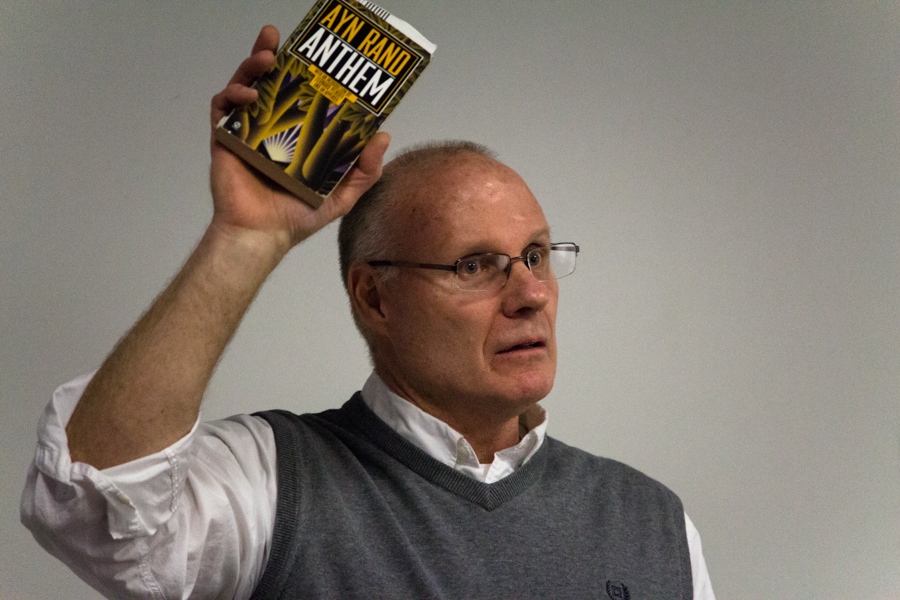The small room is brimming with people–tic tic–everyone is young: one is a child.
It smells lightly of bubble gum and B.O.–tic tic–a wall is broken down to allow more people in–tic tic–the speaker is late–tic tic.
He’s here.
He brings with him a small plastic TARDIS and a Dalek toy, well-known symbols in the “Doctor Who” world.
A fan of the show since the early ’80s, Professor Kevin Decker gave a lecture about the philosophy of “Doctor Who” to the Philosophy Club Friday afternoon in the Echo Bay Room of the SUB.
As a philosophy professor at Eastern Washington University, he said he uses his in-depth knowledge of philosophy to analyze pop culture–more specifically Doctor Who.
The show itself was not created by one person, which leads Decker to conclude this is why it has been so intriguing throughout the years. It is also the longest-running science fantasy show, titled as such because the writers don’t worry about real science, unlike in the science fiction genre.
Decker began analyzing the philosophy of ‘Doctor Who’ while writing a chapter of an anthology called “‘Doctor Who’ and Philosophy: It’s Bigger on the Inside.”
He then went on to write his own book “Who is Who? The Philosophy of ‘Doctor Who,’” which much of the lecture was based on.
Philosophy Club Treasurer Jeremiah Serrell, 20, philosophy, CDA learned of the “Whovian” professor after meeting a recruiter from EWU in the SUB. Officers of the club had been discussing the application of philosophy to popular culture for a while so he knew Decker was the perfect choice.
“If anyone is considering transferring to Eastern, they should definitely take his class,” said Maddie Nilges, 20, Gen Ed, Hayden. “Just this one lecture added another dimension to one of my favorite shows, so taking a whole semester would be amazing.”
Decker explained that the Doctor himself is a Romantic philosopher and used clips of the show from its beginning to the fiftieth anniversary special to support his argument.
Like those who lived in the era of European Romanticism, he proves that the characteristics of the show’s lead character are similar to Romantic scientists and philosophers. Both the nine-hundred-and-something Doctor and the 200-hundred-and-something Romantics are guided by emotion, mood swings, self doubt and an altered view of reality.
“I’m more of a philosopher than a ‘Doctor Who’ fan,” said Serrell. “I’ve never seen the show, but I could see the recurring Romantic themes popping up in the scenes he showed us.”
As a pacifist with a desire to stamp our cruelty and justice, Decker said the Doctor mimics the feelings of those after the French Revolution: now everything is possible and can be perfected.
The Doctor also shows to be a Romantic in his narrative livelihood that gives almost everything a human aspect–even time.
“He doesn’t have particular rules and guidelines, but the one thing he always does is help his companions become better than they have been–this suggested to me Romanticism,” Decker said.
He proves the Doctor is “a scientist with a soul of a poet.” The Doctor sees illusions in reality and something real in something that is not there.
Concluding his speech, Decker hosted a question-and-answer session where himself and the audience discussed the show’s portrayal of bisexuality, the possibility of a female Doctor and how British television is more liberal than our own.
Currently, Decker has prospects for writing a new book, teaching a “Doctor Who”-themed class at EWU entitled “Philosophical Voices in Popular Culture” and seeing the new season of “Doctor Who” land on Gallifrey, the Doctor’s homeland.
